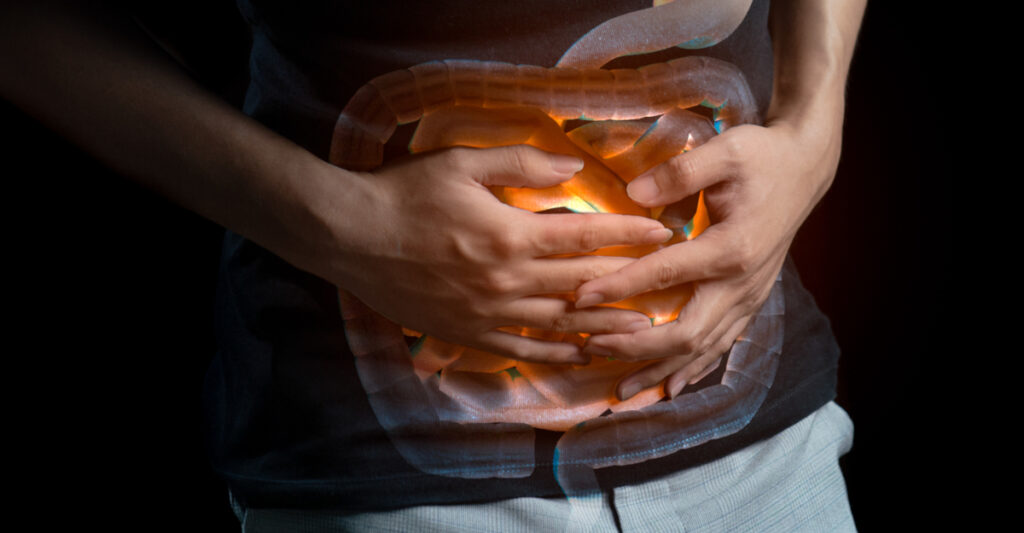It is not uncommon for blood pressure to increase slightly after eating a meal. Especially your meal was high in salt or fat. This is known as postprandial hypertension. It is a normal physiological response to the increased workload on the digestive system.
Postprandial hypertension: how does it work?
Postprandial hypertension, also known as postmeal hypertension, refers to a temporary increase in blood pressure after eating a meal. The extent to which blood pressure can rise during postprandial hypertension can vary. It depends on the individual and the meal consumed. In general, the increase in blood pressure is usually small. It has been measured in the studies at the order of 5-10 mm Hg systolic and 2-5 mm Hg diastolic. It can be higher in some cases.
During digestion, the body diverts blood flow to the stomach and intestines to aid in the process of breaking down and absorbing food. This increased blood flow can cause a temporary rise in blood pressure. Additionally, the release of certain hormones, such as insulin and norepinephrine, in response to a meal can also contribute to a slight increase in blood pressure.
Researchers of postprandial hypertension
This phenomenon has been the subject of numerous studies in recent years. Researchers are seeking to understand its causes and potential implications for cardiovascular health.
One of the most well-known researchers in this field is Dr. David D. McHenry, a professor of medicine at the University of Maryland School of Medicine. Dr. McHenry and his colleagues have published several studies investigating the link between postprandial hypertension and cardiovascular disease risk. In one study, published in the American Journal of Hypertension in 2008, they found that postprandial hypertension was associated with an increased risk of cardiovascular disease in older adults.
Another researcher, Dr. Jane E. Freedman, a Professor of Medicine at the University of Massachusetts Medical School, focused on the implications of postprandial hypertension in patients with diabetes. In a study published in the Journal of Clinical Endocrinology and Metabolism in 2009, Dr. Freedman and her team found that postprandial hypertension was common among patients with type 2 diabetes and was associated with an increased risk of cardiovascular disease.
Research conclusions
Research has shown that the magnitude of postprandial hypertension can be influenced by various factors. Studies refer to the size of the meal, the type of food consumed. Also, they point to the presence of certain health conditions such as diabetes, obesity and hypertension. For example, a high-salt, high-fat meal may cause a larger increase in blood pressure than a smaller, lower-salt meal.
In recent years, various studies have come to the conclusion that postprandial hypertension is an independent predictor of cardiovascular risk. It is especially valid patients with metabolic syndrome, hypertension, or diabetes.
Another important point is that postprandial hypertension is associated with an increased risk of coronary artery disease. Postprandial hypertension is also linked to a higher incidence of major adverse cardiovascular events.
These research concludes that postprandial hypertension should be considered as a potential target for hypertension management.
Reasons and medications
Postprandial hypertension can be caused by a number of factors. They range from high dietary salt, fat and carbohydrate intake, to age, obesity, and medications. Therefore, maintaining a healthy lifestyle and diet, monitoring blood pressure regularly is a must. Discuss with a doctor if you notice a persistent increase in blood pressure after eating can help prevent postprandial hypertension.
Currently, there are no specific drugs that have been developed specifically to treat postprandial hypertension. However, several classes of drugs that are commonly used to treat hypertension may also be effective at reducing postprandial hypertension.
One class of drugs that is often used to treat hypertension is diuretics. These drugs help to reduce blood volume by increasing urine production, which in turn can help to lower blood pressure.
Calcium channel blockers and ACE inhibitors are also commonly used for hypertension. They help to relax the blood vessels, which can also lower blood pressure.
Another class of drugs called angiotensin receptor blockers (ARBs) are also commonly used to lower blood pressure. They have been shown to be effective in some studies in reducing postprandial hypertension.
In some studies, beta-blockers were shown to help reduce postprandial hypertension. Though they are less commonly used than the previous classes.
In addition to drugs, lifestyle changes such as maintaining a healthy diet, regular physical activity and maintaining a healthy weight, monitoring blood pressure regularly, and reducing stress are also important in managing postprandial hypertension.
Other reasons why blood pressure doesn’t drop after a meal
There are a number of possible reasons why your blood pressure may not return to normal after a meal. One of the main causes is if you have high blood pressure (hypertension) or pre-hypertension. Having high blood pressure increases the workload on the heart. Also it places extra burden on blood vessels, which can lead to a persistent increase in blood pressure after eating.
Another possible cause of persistently elevated blood pressure after a meal is metabolic syndrome. It is a group of risk factors that increase your risk of heart disease and diabetes. Metabolic syndrome is characterized by high blood pressure, high blood sugar, excess body fat around the waist, and abnormal cholesterol levels.
Certain medications can also cause postprandial hypertension, for example, medications for diabetes, antidepressants, and birth control pills.
Other possible causes of persistently high blood pressure after a meal include:
- Obesity, which can lead to increased blood pressure and strain on the cardiovascular system
- A diet that is high in salt, which can cause fluid retention and increase blood pressure
- Chronic stress, which can cause the release of stress hormones that constrict blood vessels and raise blood pressure
- Kidney disease, which can affect the regulation of blood pressure
The cause of persistently high blood pressure after a meal may be unclear. Your doctor may need to perform additional testing to determine the underlying cause.






